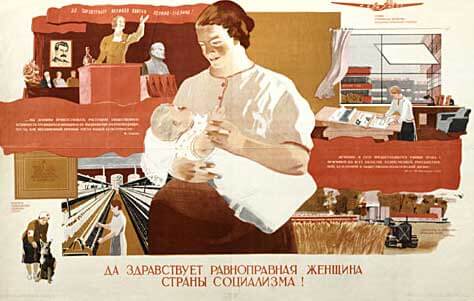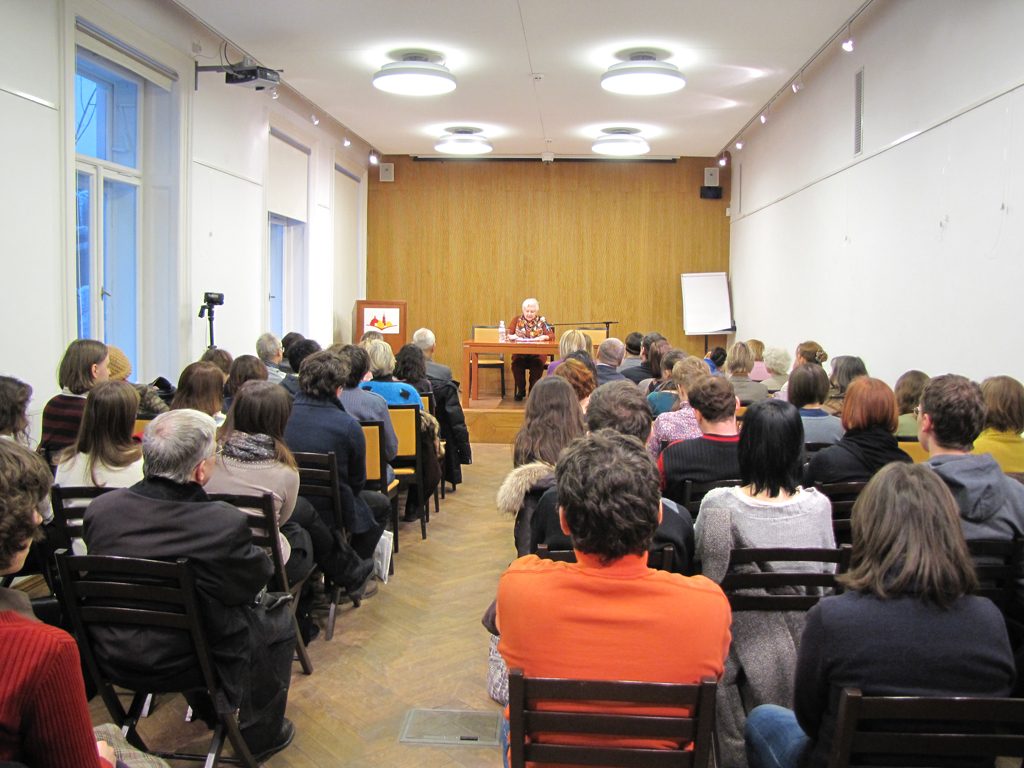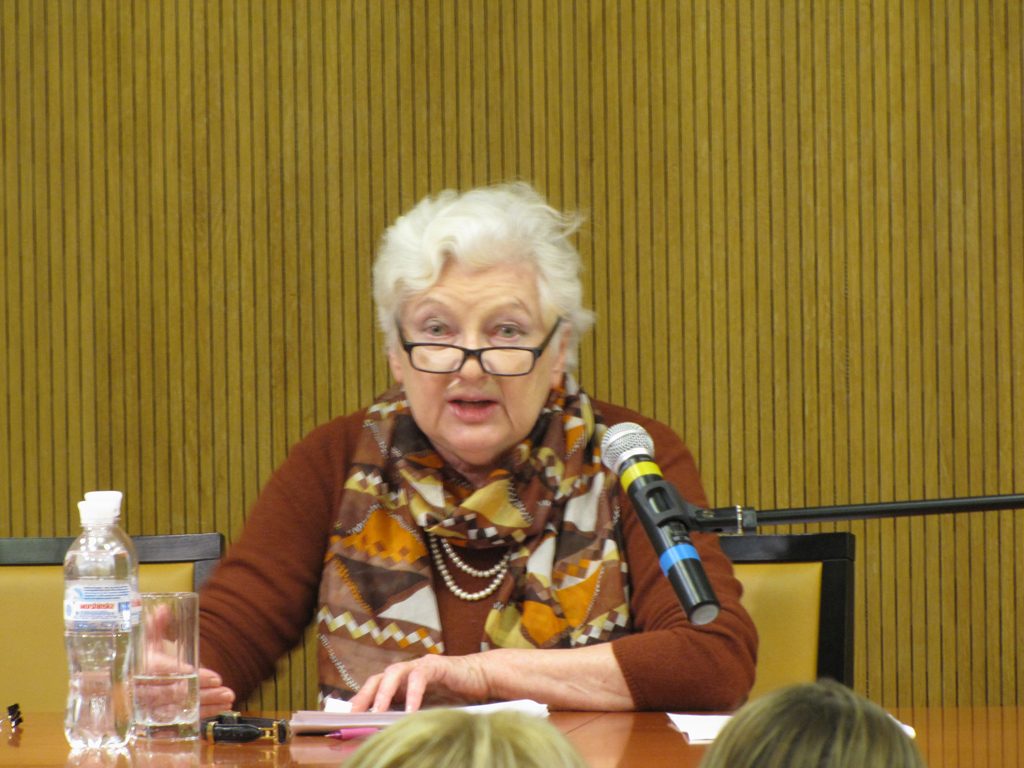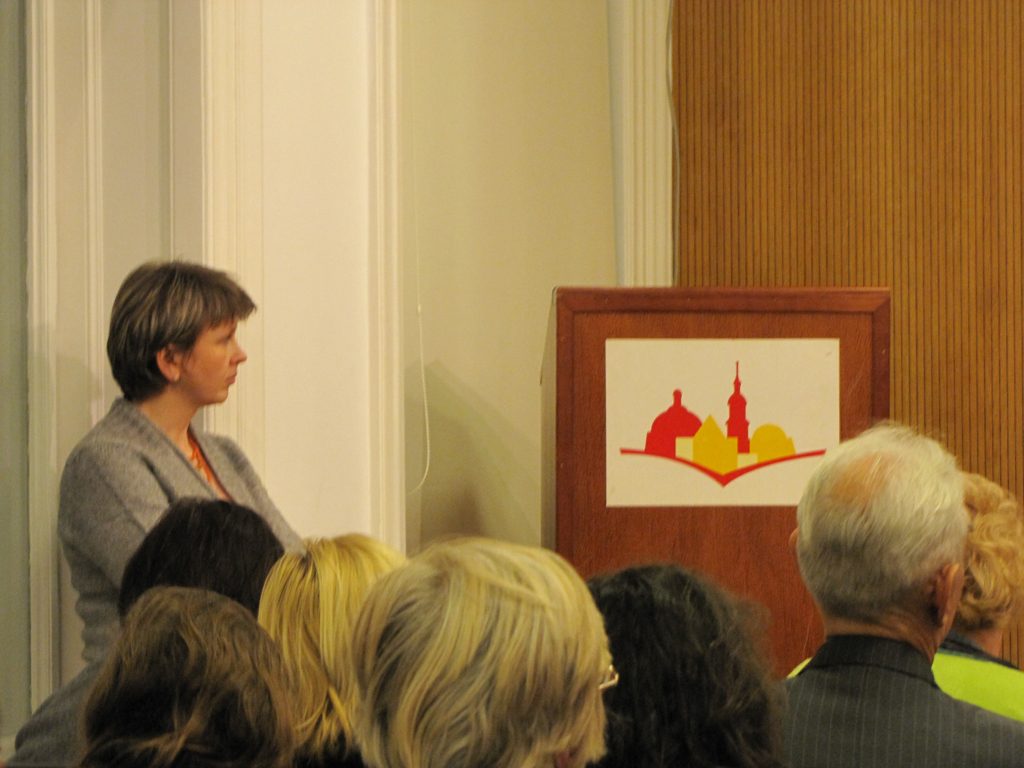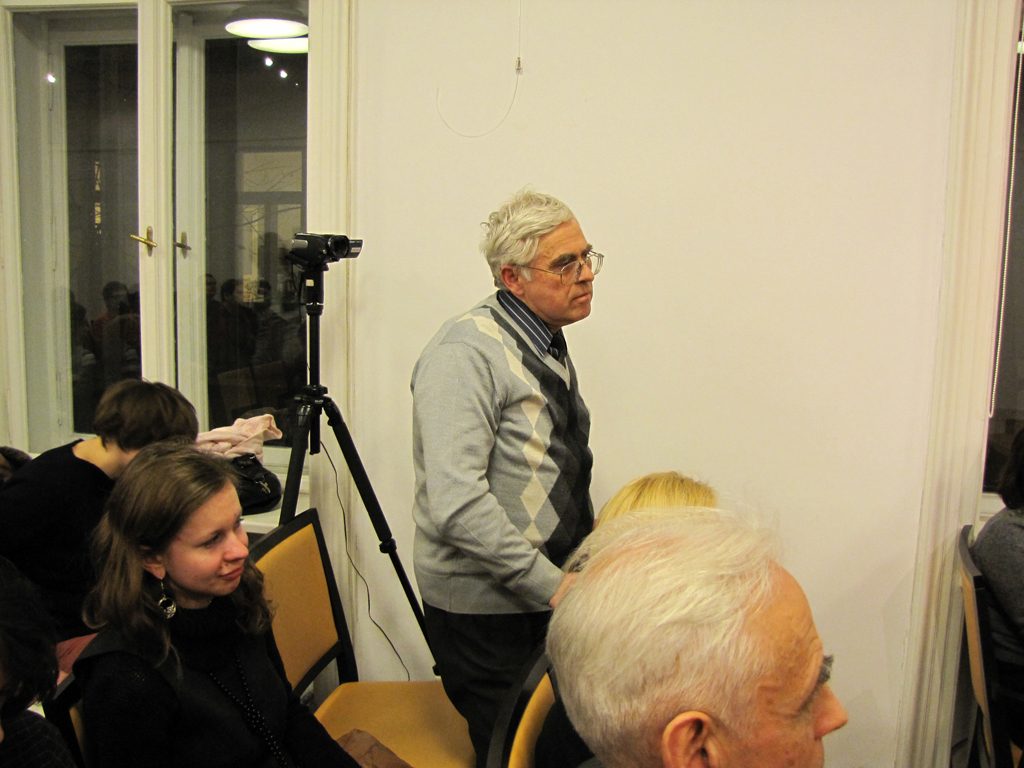Women and Totalitarianism
Martha Bohachevsky-Chomiak
February 12, 2013
Center for Urban History, Lviv
In Ukraine, this aspect of Soviet totalitarianism has enjoyed little debate and even less serious research. Yet the seven-decade record of the regime invites a more substantive analytic approach to the underlying causes of its resilience. Is there some inherent characteristic among the peoples and cultures where totalitarianism has developed which has contributed to that development? What role do gender relations play in the formation and perpetuation of totalitarianism? What is the relationship of the social status of women and the functionality of a totalitarian regime?
From 2000 until 2006, Martha Bohachevsky-Chomiak headed the Fulbright Program in Ukraine. In this capacity she worked tirelessly toward the modernization of the Ukrainian Social Sciences and their unqualified acceptance into the global academic community.
As a researcher, Martha Bohachevsky-Chomiak turned her attention to the study and comprehension of social and cultural processes in pre- and post-Soviet Ukraine. Among Ukrainian readers she is particularly noted for her exploration of the correlation between nationalism and feminism in the Ukrainian women's movement; the peculiarities involved in the processes of a national – Ukrainian – idea and identity; and the role of intellectuals and spiritual leaders in the evolution of the nation. Her current research interests are focused on the study of the complexities and inconsistencies of the propagation of the Ukrainian Greek-Catholic Church in the United States during the XXth-century.

Martha Bohachevsky-Chomiak
Professor of History, is involved in research of social processes in 19th-century Galicia and the intellectual life of pre-revolutionary Russia. Ukrainian scholars are familiar with her seminal work Feminists Despite Themselves: Women in Ukrainian Community Life, 1884-1939, first published in Canada in 1988. Her groundbreaking study earned Bohachevsky-Chomiak the 1988 Barbara Heldt Prize from the Association for Women in Slavic Studies (USA), and the 1989 Omelan and Tetiana Antonovych Foundation Prize (Ukraine). Released in Ukrainian translation in 1995 (Ukraine) with the title, “White on White: Women in Ukrainian Community Life, 1884-1939”, the study set the course for the development of women’s studies in Ukraine and the research of the Ukrainian feminist movement in the pre-soviet period.
Credits
Сover Image: Artist P. Ya. Karachentsov. "Long live the equal woman of the country of socialism!", 1938
